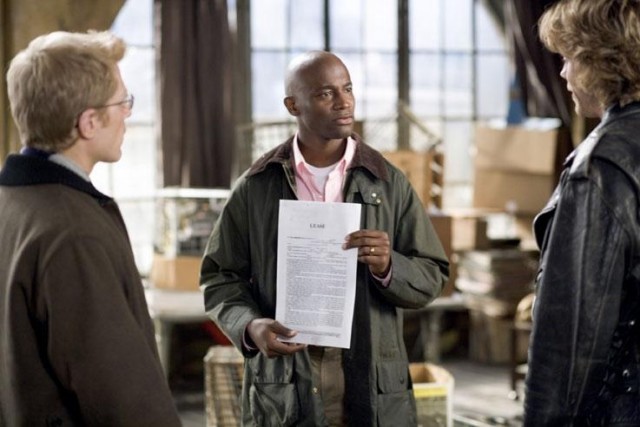Can We Make Renting Better?

The Guardian’s (UK) series on what it calls Generation Rent makes for some sobering morning reading. Millennials across the pond seem to be having as much trouble as those Stateside:
Research from the Council of Mortgage Lenders shows 71% of people born in 1970 were homeowners by the time they were 40, but among those born in 1990 the figure is likely to be just 47%. …
[Economist] Hawksworth said moves to build more homes would not have an impact in the short term and plans to make buy-to-let investments less attractive to landlords were only likely to make a difference “at the margins”. He added: “The increase in renting wouldn’t be a problem if we had the levels of quality seen in countries like Germany.
“The solution to this doesn’t have to be to get more owner-occupiers, it could be to improve the quality of rented homes and allow for longer tenancies so people have more security in that sector.”
The personal narratives collected by the Guardian echo Hawksworth: people wouldn’t mind so much the fact that they have to rent instead of buy if renting weren’t so terrible.
We have requested a longer lease — two to three years — from our landlord, who refuses our request.
Every year we don’t know whether the landlord is going to sell and we’re going to have to look for another house. We tend to pay for basic repairs ourselves, which should really fall under the landlord’s remit, as we don’t want to upset them and be given notice.
One thing we can be certain of is an annual rent increase. We paid nearly 10% extra last year in order to stay in the same area and not uproot our child from school.
Here’s another:
Rent is also often far more expensive than a mortgage. My £450 monthly rent pays for a bedroom in a shared flat, whereas the mortgage on the whole property would be less per month. My friend’s parents loaned her £30,000 to buy a flat — she rents out the second bedroom to a mate, which covers mortgage and maintenance, and she has no housing costs after bills. I spend half my monthly income on rent. I could be asked to leave with two months’ notice at any point, and the list of repairs my landlord “means to get around to” can fill a side of A4.
Renting is great for landlords, and it’s OK when you’re starting out in your career and want a degree of flexibility — so long as you get lucky with a decent landlord. But over a lifetime, it beggars you.
It seems like renting is going to be a fact of life for around half of all people currently under 40, that plenty of millennials and Generation Whatsapp or Whatever Comes Next will never own their own homes. That’s not without ramifications: An English report on the subject points out that “’House purchases have historically been a major factor in driving wealth accumulation of lower and middle classes. The inability of many to get on the ladder may limit this avenue to social mobility in the future.’”
Other generations are suffering too. The Daily Dot recounts, “more than half of renters in America are considered to be financially burdened by their rent, meaning that they spend more than 30 percent of their income just on where they live. High rents have become a national crisis.”
And telling people to move to cheaper locations isn’t the solution:
To address the cycle of poverty, we have to address increases in rent itself, not just where people choose to live. To suggest that the solution to the rent crisis is for everyone who’s being priced out is to “just move” is to derail a much bigger conversation about why people live in poverty and what can be done.
High rents are a national, not just an urban problem. Real estate company Zillow noted this year that in 2015, rents increased nationally by more than 3 percent. Meanwhile, personal incomes are creeping along; in May of 2015, disposable personal income grew just .5 percent. The average national rent, according to ApartmentGuide, is close to $800, while working full-time for the federal minimum wage nets you just under $1,000. Large portions of the country are unaffordable for those making even $10 per hour.
Which means, according to Market Watch, that the working classes are screwed almost regardless of where they live:
There were only 28 adequate and available to rent homes for every 100 extremely low-income renters in 2013, down from 37 in 2000, according to the Urban Institute, a nonprofit and nonpartisan organization that focuses on social and economic policy. “This gap between supply and demand leaves 72% of the country’s poorest families burdened by the high cost of housing,” it found. Extremely low-income renters are households with incomes at or below 30% of the median income in that region.
Not one county in the U.S. has enough affordable housing for all these renters.
How bad do things have to get before we agree something needs to be done? And what should that “something” be? Assuming that renting is going to be the long-term reality for many if not most of us, is there anything we can do as a society to make renting less onerous and stressful and expensive? Is there a way to address, or cap, rent increases, without being punitive to landlords? Incentivize the Singapore-style building of large-scale affordable housing complexes? Make multi-year residential leases more common and available?
What would help you?
Support The Billfold
The Billfold continues to exist thanks to support from our readers. Help us continue to do our work by making a monthly pledge on Patreon or a one-time-only contribution through PayPal.
Comments